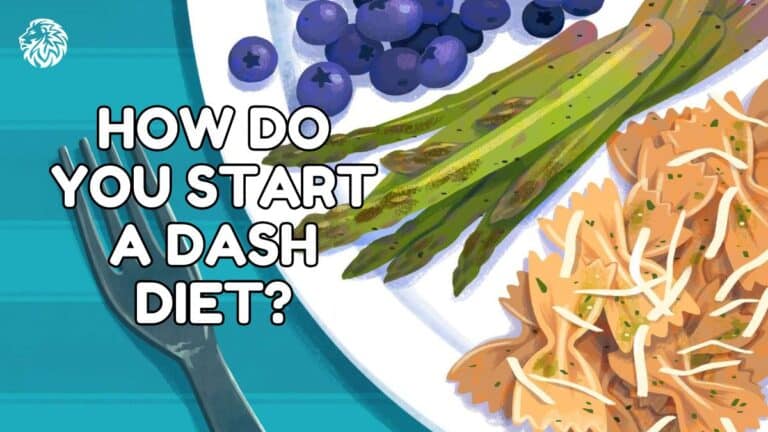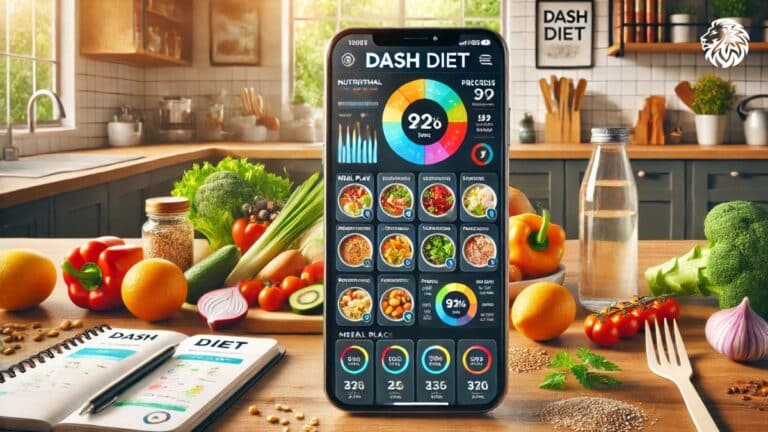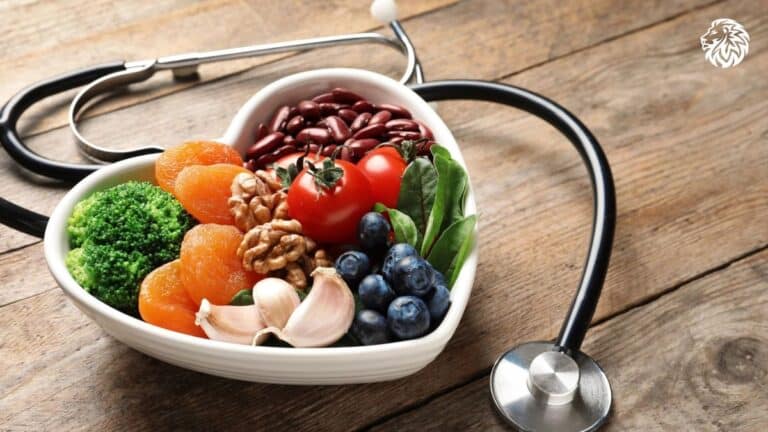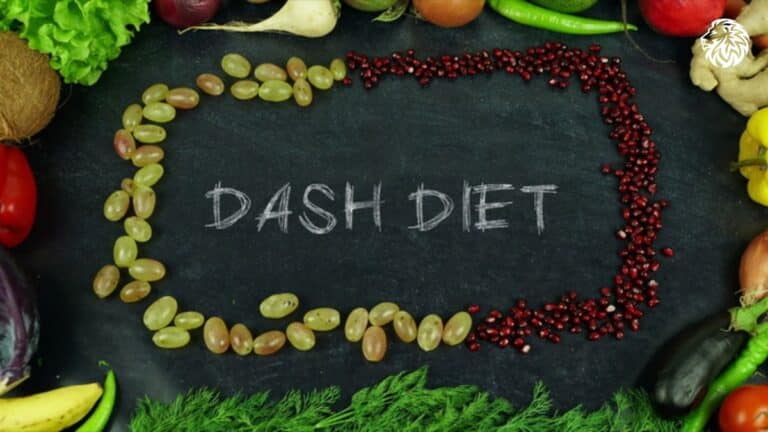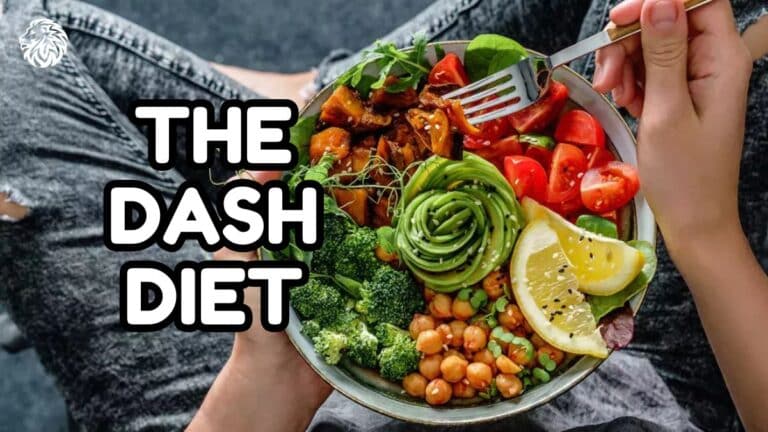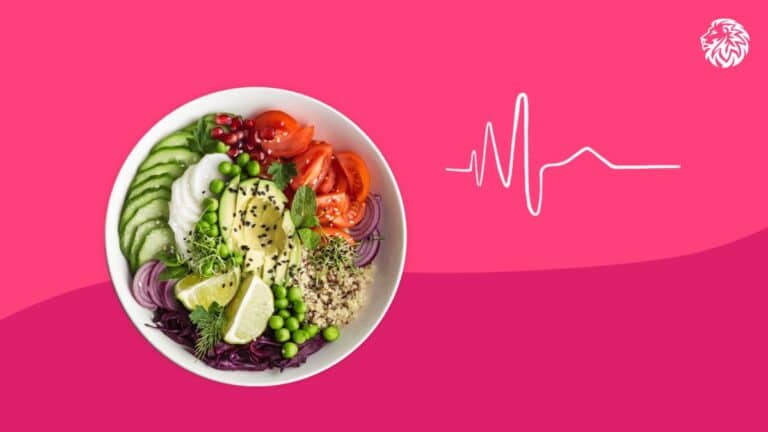If you’ve been researching ways to lower your cholesterol, you might have come across the DASH diet. The DASH diet, which stands for Dietary Approaches to Stop Hypertension, is often recommended to help manage high blood pressure, but it also has a reputation for benefiting cholesterol levels. In this post, we’ll explore whether the DASH diet can help reduce cholesterol, how it works, and what you can expect if you follow it.
What Is the DASH Diet?
Before diving into the connection between the DASH diet and cholesterol, let’s start with a brief overview of the diet itself. The DASH diet was originally designed to help people lower their blood pressure without medication. It focuses on eating a balanced diet rich in fruits, vegetables, whole grains, lean proteins, and low-fat dairy, while reducing salt, red meat, and added sugars.
The key principles of the DASH diet include:
- Eating more fruits and vegetables
- Choosing whole grains over refined grains
- Incorporating lean proteins like fish, poultry, and plant-based sources
- Limiting saturated fats and trans fats
- Reducing sodium intake
- Avoiding sugary drinks and sweets
How Does Cholesterol Affect Heart Health?
Cholesterol plays a vital role in your body, helping to build cells and produce hormones. However, not all cholesterol is good for you. There are two main types of cholesterol: LDL (low-density lipoprotein) and HDL (high-density lipoprotein).
LDL cholesterol is often called “bad cholesterol” because high levels of it can lead to plaque buildup in your arteries, increasing the risk of heart disease and stroke. On the other hand, HDL cholesterol is known as “good cholesterol” because it helps remove LDL cholesterol from your bloodstream.
To maintain heart health, it’s crucial to lower your LDL cholesterol while keeping your HDL cholesterol at a healthy level.
How Does the DASH Diet Lower Cholesterol?
So, does the DASH diet lower cholesterol? The short answer is yes, but let’s break down how it works.
1. Lower Saturated Fat and Trans Fat Intake
One of the primary reasons the DASH diet is effective at lowering cholesterol is that it encourages a reduction in saturated and trans fats. These types of fats are known to raise LDL cholesterol levels, which can increase the risk of heart disease. Foods high in saturated fats include fatty cuts of meat, full-fat dairy products, and processed snacks like chips and baked goods made with hydrogenated oils.
By focusing on lean proteins like chicken, fish, and plant-based options such as beans and legumes, the DASH diet helps reduce your intake of unhealthy fats. Additionally, the diet emphasizes low-fat or fat-free dairy options, further cutting down on saturated fat.
2. Increase in Fiber-Rich Foods
The DASH diet is also high in fiber, particularly soluble fiber, which has been shown to help lower LDL cholesterol. Soluble fiber binds to cholesterol in your digestive system, preventing it from being absorbed into your bloodstream. Instead, it’s eliminated from your body as waste.
Foods rich in soluble fiber include:
- Oats
- Barley
- Beans and lentils
- Fruits like apples, pears, and citrus
- Vegetables like carrots, broccoli, and Brussels sprouts
By encouraging a diet that’s packed with whole grains, fruits, and vegetables, the DASH diet boosts your fiber intake, helping to reduce cholesterol naturally.
3. Focus on Plant-Based Proteins
Another component of the DASH diet that can help lower cholesterol is the focus on plant-based proteins. While it doesn’t completely eliminate meat, the diet encourages reducing the amount of red meat and opting for plant-based proteins like beans, lentils, nuts, and seeds instead. These foods are naturally cholesterol-free and are rich in nutrients that promote heart health.
Replacing animal-based proteins with plant-based ones can significantly impact your cholesterol levels. Many studies have shown that people who follow plant-based diets tend to have lower LDL cholesterol and reduced risk of heart disease.
4. Healthy Fats from Nuts and Seeds
The DASH diet also includes nuts, seeds, and healthy fats, such as those from olive oil and avocados. These healthy fats, particularly those rich in omega-3 fatty acids, can help raise HDL cholesterol while lowering LDL cholesterol. Omega-3s are especially beneficial for heart health, as they reduce inflammation and improve overall cardiovascular function.
Nuts and seeds are also a great source of protein and fiber, making them a valuable part of the DASH diet when eaten in moderation.
5. Reducing Sodium Intake
While sodium doesn’t directly affect cholesterol levels, it does play a role in overall heart health. The DASH diet’s emphasis on reducing sodium helps lower blood pressure, which in turn reduces strain on the heart. Since high blood pressure and high cholesterol often go hand-in-hand in increasing the risk of heart disease, managing both can have a synergistic effect on your overall cardiovascular health.
What Do the Studies Say?
Scientific studies have supported the connection between the DASH diet and lower cholesterol levels. Research has shown that people who follow the DASH diet not only experience lower blood pressure but also see improvements in their cholesterol profiles.
One study published in the American Journal of Clinical Nutrition found that participants who followed the DASH diet for eight weeks experienced significant reductions in LDL cholesterol and total cholesterol levels. Another study showed that individuals with high cholesterol who adhered to the DASH diet lowered their LDL cholesterol by an average of 11 mg/dL, which is a meaningful reduction.
Other Health Benefits of the DASH Diet
In addition to lowering cholesterol, the DASH diet offers several other health benefits. These include:
- Reduced Blood Pressure: The diet is specifically designed to lower blood pressure by limiting sodium and promoting heart-healthy foods.
- Weight Management: Because the DASH diet emphasizes nutrient-dense, whole foods, it can help with weight management, which in turn benefits heart health and cholesterol levels.
- Improved Blood Sugar Control: The focus on whole grains, lean proteins, and fiber-rich foods makes the DASH diet a good option for those looking to stabilize blood sugar levels, potentially reducing the risk of type 2 diabetes.
Is the DASH Diet Right for You?
If you’re looking to lower your cholesterol and improve your overall heart health, the DASH diet can be an excellent choice. It’s flexible, balanced, and easy to follow, making it a sustainable option for most people. However, as with any diet change, it’s important to consult your doctor or a nutritionist before making any significant adjustments, especially if you have pre-existing health conditions.
Tips for Success on the DASH Diet
To make the most of the DASH diet and see results in your cholesterol levels, here are a few tips to keep in mind:
- Plan your meals: Having a meal plan will help you stay on track and ensure you’re incorporating the right mix of foods.
- Limit processed foods: Many processed foods are high in sodium and unhealthy fats. Stick to fresh, whole ingredients whenever possible.
- Read food labels: Pay attention to nutrition labels to check for hidden sources of saturated fats, trans fats, and sodium.
- Stay active: Regular physical activity can complement the DASH diet by further improving heart health and cholesterol levels.
Final Thoughts
In conclusion, the DASH diet does more than just lower blood pressure; it also has a positive impact on cholesterol levels. By focusing on nutrient-rich, heart-healthy foods and reducing unhealthy fats, the DASH diet can help lower LDL cholesterol, raise HDL cholesterol, and improve your overall cardiovascular health. If you’re looking for a diet that’s both heart-friendly and sustainable, the DASH diet might be worth considering.
Reference
- National Heart, Lung, and Blood Institute. (n.d.). DASH research. U.S. Department of Health and Human Services. https://www.nhlbi.nih.gov/education/dash/research
- Mayo Clinic. (2022). DASH diet: Healthy eating to lower your blood pressure. https://www.mayoclinic.org/healthy-lifestyle/nutrition-and-healthy-eating/in-depth/dash-diet/art-20047110
- WebMD. (2023). The DASH diet for high blood pressure. https://www.webmd.com/hypertension-high-blood-pressure/dash-diet
- Heart and Stroke Foundation of Canada. (n.d.). DASH diet: Healthy eating guide. https://www.heartandstroke.ca/healthy-living/healthy-eating/dash-diet
- MedlinePlus. (2022). DASH diet: Instructions for patients. https://medlineplus.gov/ency/patientinstructions/000784.htm
- Health US News. (n.d.). Best diets: DASH diet review. https://health.usnews.com/best-diet/dash-diet

